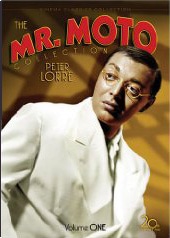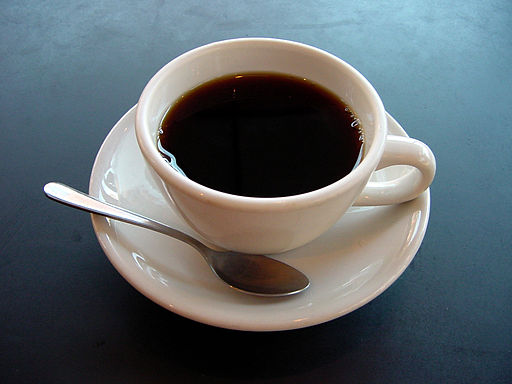\zam-'bä-zō\
Last week we spent a fair bit of time polishing up the classic “Java Jive,” which was originally recorded by the Ink Spots in 1940 and then repopularized by the Manhattan Transfer in the 1970s.
| It’s a catchy little song—many of you may know it already. It begins: “I love coffee, I love tea / I love the Java Jive and it loves me…” And since coffee, like many exhilarating substances, has inspired considerable jive, the song goes on to riff on a series of more or less obscure coffee-related references. Give it a listen, or check out the lyrics here. | |
And there’s “A slice of onion and a raw one / Draw one,” which is lunch counter lingo for “a burger, rare, with onions, and a cup of coffee from the urn.”
And there’s “drop your nickel in my pot, Joe!” which references the classic 5-cent price of cup of coffee--and yes, that is definitely a double entendre. (Joe, by the way, seems to be a shortened form of jamoke, which itself collapses Java and Mocha—two of the primary sources of coffee beans.)
In the novels, Mr. Moto is cultured, resourceful, and unfailingly polite; he has a degree from Stanford, and he also turns out to be proficient in jujitsu, firearms, and pole vaulting. But in all his adventures amidst the intrigues of the Greater East Asia Co-Prosperity Sphere, he displays no apparent affinity for coffee, beyond being occasionally described by the narrator as “coffee-colored.” [The push-pull as these books use Mr. Moto to work out American anxieties about the ambitions of Imperial Japan and the status of the Oriental Other is totally fascinating, but I don’t have space to get into it here.]
| The movies augment Mr. Moto's accomplishments to include talents like ventriloquism, a broad knowledge of hangover cures, and a facility with disguise. So it is conceivable that in one of these movies Mr. Moto disguises himself as a waiter or dispenses coffee as part of a hangover remedy—but if so my sources do not mention it. It may be that Wikipedia is right after all.* |
So what the heck is “dat zambazo”? Dat is pretty clearly “that,” but zambazo doesn’t seem to exist in any of my usual dictionary sources. Googling the word turns up a 2011 video made by a group of Scandinavian art/design students, who made a fictional ad campaign for a coffee product called "Zambazo” for a class project. So there’s a clear confirmation that zambazo is associated with coffee, but no indication of where the word comes from. (It could even be that the students got it from the “Java Jive”…)
A broader search turned up plenty of unlikely possibilities. I learned that there is a Swahili word sambaza which means “to make smooth.” I found a company specializing in açai products that calls itself Sambazon. I wandered for a while in the gardens of sambusas (also called sambosas and samosas), those delicious savory triangular pastries popular across India, Southeast Asia, and North Africa. One online lexicon included the Esperanto word zambezo as the equivalent to the Dutch aambei—which, alas, turned out to mean “hemorrhoid.” Another dead end (as it were).
Ultimately, the most promising leads came from Spanish. The Story of Spanish mentions zambazo in passing as an alternate form of zambo—a term used in colonial Mexico’s intricate racial caste system to refer to the child of a mulatto (mixed African and white Spaniard) and a native. Zambo may also be related to sambo—though Green’s Dictionary of Slang says that in the United States the term, which dates back to slavery, may in fact derive from the Foulah word for “uncle” or a Hausa word that means “second son.”
But my personal hunch, fueled only by speculation and caffeine, is that zambazo comes from the Spanish zambombazo, which means “the sound of an explosion” or “a powerful blow from a fist”—in effect, “Kaboom!” This fits with the long tradition of nicknames for coffee that emphasize its power as a pick-me-up: think “rocket fuel,” “jitter juice,” “jamoke jolt,” “leaded/unleaded,” etc. Actually proving this would require considerably more research and expertise than I can muster (what with the day job and saving the world and all), but it sounds like a reasonably plausible story.
*One enterprising sleuth has posited a connection between Mr. Moto’s coffee pot and a scene from the end of Arsenic and Old Lace. Elated to learn he is not doomed to live out the family curse of becoming either insane or a murderer, Cary Grant leaps into a taxi and exclaims “I am not a Brewster! I am the son of a sea cook!”—to which the taxi driver sarcastically replies, “I am not a taxi driver. I am a coffee pot.” It is indisputably true that Peter Lorre appears in Arsenic as well as the Mr. Moto movies, but since “Java Jive” came out before Arsenic and Old Lace opened on Broadway, I don’t think the play can be the source of the lyric. (If anything, the influence runs the other way.)



 RSS Feed
RSS Feed